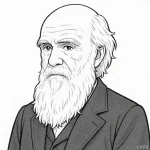“Thinking that living a comfortable life and simply being alive is happiness—that’s the way an animal feels.”

- January 14, 1925 – November 25, 1970
- Born in Japan
- Novelist, playwright, critic, political activist
Japanese
「人並な安楽な暮しをして、生きているのが仕合せだと思っているのは、動物の感じ方ね。」
English
“Thinking that living a comfortable life and simply being alive is happiness—that’s the way an animal feels.”
Explanation
In this quote, Mishima contrasts the human experience with the instinctual and basic existence of animals. He criticizes the idea that merely having a comfortable life and surviving is enough to define happiness. Mishima argues that this perspective is akin to the instinctual satisfaction of animals, who do not seek or question anything beyond basic survival and comfort. By comparing this mindset to that of an animal, Mishima suggests that such an outlook is limited and uninspired. He implies that humans should aspire to more than just comfort—they should seek a deeper purpose, growth, and transcendence that goes beyond mere existence.
Mishima’s use of the term “animal” emphasizes his belief that humans are not merely meant to live in the same way that animals do, focused only on basic survival and comfort. Instead, he advocates for a higher human experience—one that involves striving for meaning and personal excellence. This quote reflects his philosophical view that human beings have the capacity to transcend their physical needs and seek something more elevated, whether that is art, self-expression, or a higher moral calling. For Mishima, true happiness is not just found in comfort, but in the pursuit of something that challenges the self and goes beyond mere physical existence.
In a modern context, Mishima’s words can be seen as a critique of a consumer-driven society that often places comfort and material success as the highest goals. Many people today are encouraged to focus on comfort and security, believing that happiness is equated with wealth, status, or ease of living. However, Mishima’s quote challenges this notion, suggesting that true fulfillment comes from the pursuit of a deeper purpose—one that may involve self-discovery, personal sacrifice, or creative endeavor. His words invite us to reflect on how the human condition can and should strive for something more than mere comfort—for a life that is meaningful and intentionally lived.
Would you like to share your impressions or related stories about this quote in the comments section?




